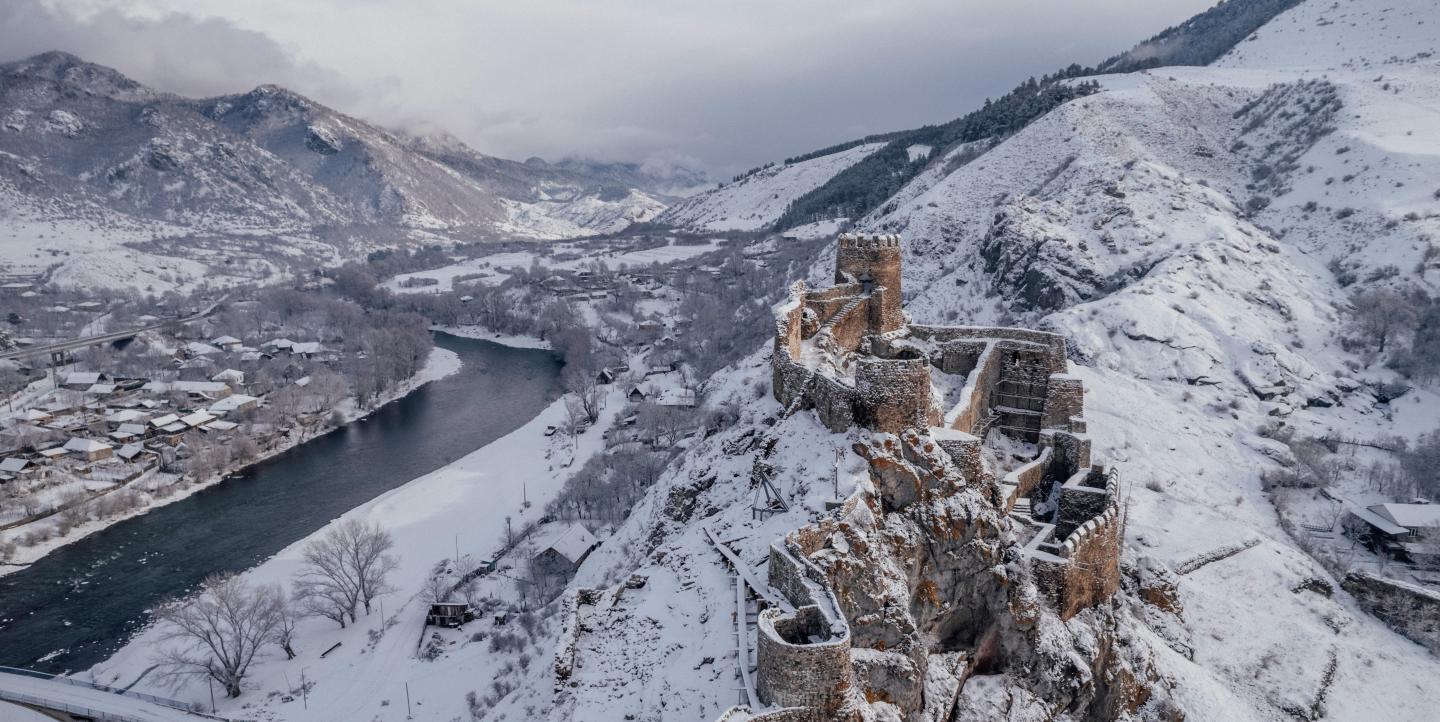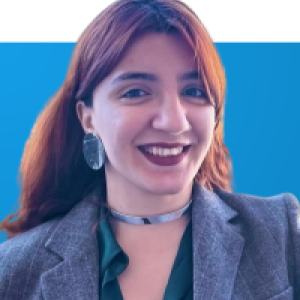Every weekend, a team of media trainers and translators takes a bus full of laptops, photo equipment and video cameras to the remote regions of Samtskhe Javakheti and Kvemo Kartli in southern Georgia.
They visit villages — where the people are primarily ethnic Azerbaijani and Armenian, and the majority don’t speak Georgian — to train young people on the basics of multimedia journalism.
Run by the Georgian Institute of Public Affairs (GIPA) since 2017, this “studio on wheels” called the GIPA Media Lab, is the brainchild of Nino Ivanishvili, dean of the Caucasus School of Journalism and Media Management at GIPA.
How the program works
The GIPA Media Lab is a one-year program split into five modules: multimedia storytelling, photo storytelling, video storytelling, media literacy and social media.
The Media Lab enrolls 30 participants from each of the two regions it visits, including from villages where education opportunities are especially rare. “In the remote areas there is a transportation problem. What we do is bring these participants from different villages by bus [to the training location], then take them back,” said Nino Makhviladze, a lecturer at GIPA and manager of the Media Lab.
During each module, the participating kids develop story ideas that they work on with lecturers from GIPA who work as trainers with the Media Lab. At each module’s end, they present their stories which tend to focus on social issues in their villages, at a festival attended by family members, friends, media and local government representatives.
“Everyone can see what our young people want to talk about,” explained Makhviladze. “Their stories usually depict issues in the region or other pressing topics regarded as problematic today. They raise public awareness around these problems.”
GIPA invites well-known documentary filmmakers and journalists from Armenia, Azerbaijan and Georgia to attend the festivals and serve as jury members to evaluate the strongest reporting projects. Winners are awarded photo equipment and video cameras, microphones, laptops, and special mention certificates.
The awards, said Makhviladze, encourage kids to continue their work after they graduate from the program: “We say, ‘okay, we are teaching you how to produce, how to tell the story in different digital formats. When we are gone, you will have in your hands your own production gear so that you can continue telling the stories.’”
GIPA partners with youth education centers to use their offices for the Media Lab trainings. Equipment is also left on site for students to access during the week as they prepare their stories.
At the end of the program, participants from both regions are brought to Tbilisi for a final grand festival where the participant deemed to have the strongest overall project is awarded free tuition to attend GIPA (which is a private university). In all today, the program has eight graduates studying at GIPA for free.
Obstacles
For Makhviladze, managing the Media Lab has been a challenging experience despite her years of work managing regional journalism projects.
Finding young people to take part in the program proved difficult, for one. “It required understanding the context of the regions. It was quite a big challenge how to recruit kids, how to offer our program,” said Makhviladze.
GIPA worked with the Ministry of Education and its local representatives in the regions to help with this push. They helped coordinate visits for Makhviladze to local schools for her to present the project to children and their parents.
Language barriers have presented a second obstacle. Students from GIPA assist the trainers, interpreting for them into either Azerbaijani or Armenian, the languages spoken by the kids.
“It was a win-win situation because there was no language barrier, and participants were getting everything in their native language. Second thing was that it built additional trust because kids were seeing Georgians, Armenians and Azerbaijanis come together — they could see the positive relationships.”
Success stories
Sevak Gabriyelyan, a 23-year-old from Samtskhe–Javakheti, is one of GIPA’s Media Lab graduates, and winner of the program’s grand prize in 2019. A third-year student at GIPA today, Gabriyelyan was only 18 years old when he joined the Media Lab and learned how to shoot video, take photos and edit.
“This program helps you to make the best version of yourself,” he said.
The documentary for which he won the Media Lab’s grand prize focused on problems with drinking water in his village. After publishing, the local government addressed the issue. “With this film we had success, and I think had a role in solving it. The local municipality allocated money to fix the problem,” said Gabriyelyan.
Some graduates have opened small photo or video studios, and others have themselves begun training kids from the regions on multimedia skills.
Gulchin Ismayilova, from a village in Kvemo Kartli, was able to find a job after taking part in the program in 2021. She recalled how her village wasn’t used to seeing girls operating cameras. “It was a very strange process for the locals. But slowly they got used to it and we stopped having problems,” she said. “After that, we started thinking about social issues like these and reporting about them — especially learning how to tell these stories with video and photos. It was a really big thing for me.”
The knowledge she acquired helped her receive an internship at the first community radio center in her region, which later led to full-time employment.
Today a professional journalist, Ismayilova continues to report on the important issues her region faces. “What GIPA Media Lab taught me still helps me in my job,” she said.
Photo by Ivars Utināns on Unsplash.


